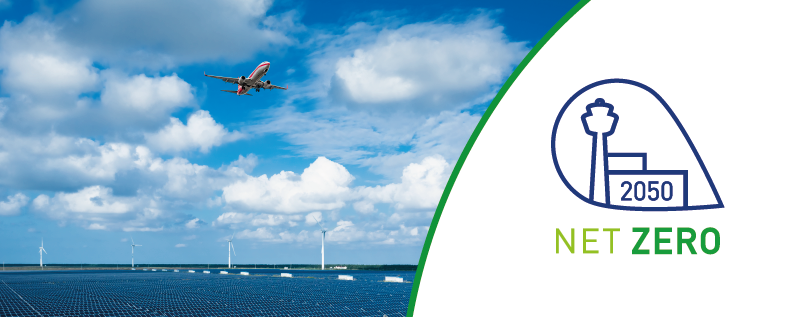TERMS AND CONDITIONS
SERVICE POLICIES
This website is the property of ANA - Aeroportos de Portugal, S.A. (“ANA”). These Service Policies shall govern the relationship between ANA and the user of the website. These policies may be amended whenever deemed necessary by ANA.
If ANA decides to amend these Service Policies, the new version will replace the present one, effective as of its publication date at this website. The relationship between ANA and all users will then be governed by the newly published version.
We advise you to visit this page periodically to ensure that you are aware of the Service Policies in effect. Please also note that ANA reserves the right to change the content of this website at any time.
If the user does not agree with these terms and conditions, they may not continue to use this website or book any services on it.
The purpose of this website is to provide commercial and operational information relevant to users of the Lisbon, Porto, Faro, Madeira and Azores Airports.
PAYMENT METHODS AND SECURITY
The connection to the payment pages of the www.ana.pt website employs a series of security measures and methods to protect our users' personal information. As part of this process, your personal data is encrypted so that it cannot be read by third parties.
The user can choose to pay for any services booked via credit card.
ANA shall not be held liable for any fraudulent, unlawful or abusive use of credit cards or any other payment method. Nonetheless, ANA will not tolerate any actual or attempted fraud or unlawful use of these payment methods.
If ANA discovers that the user has attempted to use an unauthorised means of payment, ANA will ban the user, who will be prohibited from using the services at www.ana.pt. In such case, ANA also reserves the right to take legal action against the user.
Credit Card
Services booked at the website can be paid for using VISA or Mastercard credit cards of which the user is the beneficiary.
Pursuant to new security rules issued by VISA International and Europay/Mastercard International as of 1 April 2001, all authorisation requests to perform transactions using cards from these systems can only be processed by RedUnicre, so long as the security code (CVV2/CVC2) of the respective card is included in the information provided. The security code is a three-digit number printed on the back of the card, after the card number, on the right-hand side of the signature panel of all VISA and Europay cards.
Bookings made via credit card shall be subject to confirmation by RedUnicre. If the request is denied, please contact your bank or the card issuer for further clarification.
MBnet
MBnet is a solution from SIBS – the organisation responsible for the “Multibanco” ATM network – to make payments conveniently and securely at the website www.ana.pt. No credit card is required. Simply sign up for MBnet at an ATM, or via your home banking account.
When you decide to purchase a service, go to the website www.mbnet.pt to generate a credit card number and set the maximum amount of the transaction. When you make the payment, the purchase amount will be debited from your bank account up to this limit. Since it is a virtual card, valid for only one transaction up to the maximum amount in question, using MBnet affords you greater security.
Pricing policy
All prices shown include VAT at the legal rate in force in Portugal.
Exchange rate policy
The currency used to indicate service costs is the euro, and the final purchase shall be made in euros.
CAR PARKING SERVICE
Framework
For the purposes of the booking, the customer agrees to understand and comply with the “Regulations for the Operation and Use of Parking Lots and Drop-Off and Pick-Up Zones at the Airports of ANA, S.A.” (Regulation no.386/2019 of 30 April 2019 on the Operation and Use of Parking Lots and Drop-Off and Pick-Up Zones at Airports, published in the Official Gazette (Diário da República) no. 83, Series II, of 30 April 2019).
Liability
Pursuant to article 27 of Regulation no.386/2019 of 30 April 2019 on the Operation and Use of Parking Lots and Drop-Off and Pick-Up Zones at Airports, published in the Official Gazette (Diário da República) no. 83, Series II, of 30 April 2019, stopping and parking in parking lots and drop-off and pick-up zones shall not constitute a deposit contract for vehicles or any items inside them. As such, ANA and/or its contracted service provider shall not be held liable for any theft, robbery, damage or loss caused by third parties to vehicles, nor shall they have any duty or obligation to guard, preserve and maintain the parked vehicles.
Products and Prices
ANA offers a wide range of car parking options. These options can vary according to the parking lots chosen, and are limited to the number of available parking spaces.
Prices and options per parking lot shown at the website are subject to changes and updates without prior notice.
General Booking Conditions
When making a booking, the customer must correctly fill in the information requested on the form, otherwise it will not be validated by ANA.
Whenever a customer makes a booking, they will receive a confirmation email with the parking voucher and an email with the invoice. You must take a printed copy of the voucher you received and/or a digital version of the QR code with you, and scan it at one of the parking lot's entrance points.
We recommend that you print the voucher in paper format as well, just in case the device fails to scan it (which sometimes happens due to the device’s brightness levels or other external factors).
Parking Lot Entrance/Exit
If the parking lot entrance is equipped with a barcode/QR code reader, you must swipe your voucher on this reader. The gate will open, and you can park in a vacant space of your choice for the duration of your booking.
Once the voucher has been correctly scanned, some parking lots will issue a ticket automatically, with no need to push any buttons. Keep this ticket in case you have to pay additional amounts on top of the booking – when no ticket is issued, the system will use the licence plate to calculate the additional amount.
If you have exceeded your booking period, the ticket must be presented together with the voucher at the cashier before leaving the parking lot in order to be validated; otherwise, please continue to the exit.
Please do not use the Via Verde system at any time, since it is not compatible with the booking service.
Entering the parking lot via the Via Verde system will prevent the voucher from being used. There will be no entitlement to a refund.
Cancellation
The customer can cancel a booking free of charge up until 12 hours before the scheduled entry time. Cancellations after this time will not be refunded.
To make the cancellation, the customer must access the platform in their personal area – if they have logged in – or via the booking reference (beginning with ANA-xxxxx), the email address used in the purchase, postal code and location, via the option: Login - log in with booking reference.– If you have booked without logging in, please contact our services by calling 808 919 091, or send an email to the following addresses:
- bookings for the Lisbon Airport - lisboapark@ana.pt
- bookings for the Porto Airport - portopark@ana.pt
- bookings for the Faro Airport - faropark@ana.pt
- bookings for the Madeira Airport - madeirapark@ana.pt,
following the instructions given by the operator.
There will be no refund if bookings are not used for reasons beyond ANA's control.
The voucher is for single use only, and only guarantees access to the parking lot. Parking spaces are unmarked unless otherwise indicated.
Any failure to use, or partial use of, the voucher does not entitle a full or partial refund for the booking.
The driver of the vehicle shall be responsible for any damages caused in the parking lot to ANA or to third parties.
The booking and use of a parking lot does not exempt you from consulting parking regulations in effect, which are available for consultation at the cashiers.
LOUNGE
The “ANA Lounge” was created with the comfort and convenience of frequent travellers (who opt for a differentiated experience) in mind. This service is available at the Lisbon, Porto, Faro and Madeira airports, and can be booked via the website www.ana.pt, with a maximum usage time of three hours.
Prices shown at the website are subject to changes and updates without prior notice.
General Booking Conditions
When making a booking, the customer must correctly fill in the information requested on the form, otherwise it will not be validated by ANA.
Whenever a customer makes a booking, they will receive a confirmation email with the voucher and an email with the invoice.
The voucher must be printed out and presented at the entrance to the lounge. Please note that you may also be asked for your boarding pass when you enter the lounge.
Cancellation
The customer can cancel/reschedule a booking free of charge up until one hour before the scheduled day. Cancellations or rescheduling after this time will not be refunded.
To make the cancellation, the customer must access the platform in their personal area (if they have logged in) or via the booking reference (beginning with ANA-xxxxx), the email address used in the purchase, postal code and location, via the option: Login - log in with booking reference (if you have booked without logging in).
There will be no refund if bookings are not used for reasons beyond ANA's control.
The voucher is for single use only.
Any failure to use, or partial use of, the voucher does not entitle a full or partial refund for the booking.
FAST TRACK
The Fast Track service is a priority channel that allows you to pass through security control more quickly. The service is available at the Lisbon, Porto, Faro, Madeira and Ponta Delgada airports, and can be booked via the website www.ana.pt.
Prices shown at the website are subject to changes and updates without prior notice.
Please note that, although "Fast Track" allows you to reach the aircraft faster by reducing queuing times, it does not replace or shorten the mandatory check-in, security control or boarding procedures. We therefore always recommend that you set aside time for these procedures.
Please note that the Fast Track channel may be affected in the event of a strike, so another channel may be made available for this purpose.
General Booking Conditions
When making a booking, the customer must correctly fill in the information requested on the form, otherwise it will not be validated by ANA.
Whenever a customer makes a booking, they will receive a confirmation email with the voucher and another email with the invoice.
Once at the airport, after checking in, you should go to the Fast Track queue with your boarding pass and voucher and present the receipt with the barcode.
Cancellation
The customer can cancel a booking free of charge up until one hour before the scheduled day. Cancellations or rescheduling after this time will not be refunded.
To make the cancellation, the customer must access the platform in their personal area – if they have logged in – or via the booking reference (beginning with ANA-xxxxx), the email address used in the purchase, postal code and location, via the option: Login - log in with booking reference.– if you have booked without logging in.
There will be no refund if bookings are not used for reasons beyond ANA's control.
The voucher is for single use only.
Any failure to use, or partial use of, the voucher does not entitle a full or partial refund for the booking.
RECOMMENDATIONS AND PRECAUTIONS
ANA is committed to ensuring the privacy and protection of the personal data of all those who interact with it, particularly users of the website www.ana.pt.
This effort must be matched by a responsible attitude on the part of users to protect their personal data. To this end, ANA advises users to:
- Not share their username and password;
- Not write down their password or username in easily accessible places (calendar, computer, etc.);
- When accessing the payment page or pages for editing personal data, confirm that the browser is in a secure session (in this case, a specific symbol and a padlock are displayed in the browser's footer bar, and the web address will begin with "https://"). You can also confirm that the certificate corresponding to the secure session belongs to ANA - Aeroportos de Portugal, S.A., by checking the information in the window that opens when you click on the padlock);
- Ensure that the browser is closed before leaving the computer;
- Ensure that the computer equipment or network used to access www.ana.pt is free of viruses and spyware.
INTELLECTUAL PROPERTY RIGHTS
All intellectual property rights related to information provided at this website, including but not limited to the content of text, titles, photos, images, moving images, illustrations, names, logos and trademarks, shall belong to ANA or potential licensors.
The fact that ANA makes this information available does not, under any circumstances, grant the user the right to reproduce or distribute this information. Such actions are not permitted without prior consent from ANA or the potential licensors referred to above. However, the user shall be authorised to download and/or print the information for personal, non-commercial purposes.
The presentation of this website embedded in other websites not belonging to ANA shall be prohibited. The user can, however, create and distribute links to the pages of www.ana.pt. ANA reserves the right to approve or deny these links.
LINKS
The website www.ana.pt may contain links to other external websites operated by third parties, including retailers and rent-a-car operators. The websites corresponding to these external links are not under the control of ANA, who shall not be held liable for the content of these websites, any products or services that the user may purchase or hire at them, or the websites linked to or referred to in them. ANA cannot guarantee that the content contained on any third-party website is accurate, legal or inoffensive.
Some external websites may be displayed within the website www.ana.pt through frames, whether or not they include some of our website content, or include reciprocal links to our website. These resources are shown solely for the user’s convenience, and do not constitute an endorsement of these websites or their content.
The user shall assume sole responsibility for the use of external websites.
TERMINATION OF USE
ANA may, at any time and per the criteria it deems appropriate, terminate the user's access to the website www.ana.pt.
PRIVACY
Please consult our privacy policy here, which determines how we collect and use personal information that we may obtain through your use of www.ana.pt.
ANA only works with entities that guarantee that they have implemented appropriate technical and organisational measures in order to meet legal requirements, particularly in the area of security and confidentiality. ANA thus aims to defend the rights of personal data subjects, in order to protect this data against unauthorised access, improper use, loss or destruction.
These technical and organisational measures are reviewed and improved periodically, and the website www.ana.pt is constantly monitored by specific tools to detect and eliminate potential cyberattacks.
GUARANTEE LIMIT
ANA endeavours to ensure that the information at this website is accurate and complete. Even so, ANA cannot guarantee, either explicitly or implicitly, that the information contained at the website is complete and accurate, or that this website will not be subject to delays or interruptions.
LIMITED LIABILITY
The website user agrees to hold ANA harmless from any direct or indirect loss resulting from the use of information contained therein. Likewise, ANA shall not be held liable for products and/or services offered by third parties via this website.
GENERAL
ANA and the retailers found at www.ana.pt shall not be held liable for delays or contractual breaches due to force majeure, disturbances, total or partial strikes, flood, fire or war.
The agreement between the user and ANA, based on these terms and conditions, shall be governed by and interpreted in accordance with Portuguese law.
The user irrevocably and unconditionally agrees to submit to the non-exclusive jurisdiction of the Lisbon district court in relation to this agreement.
January 2025













